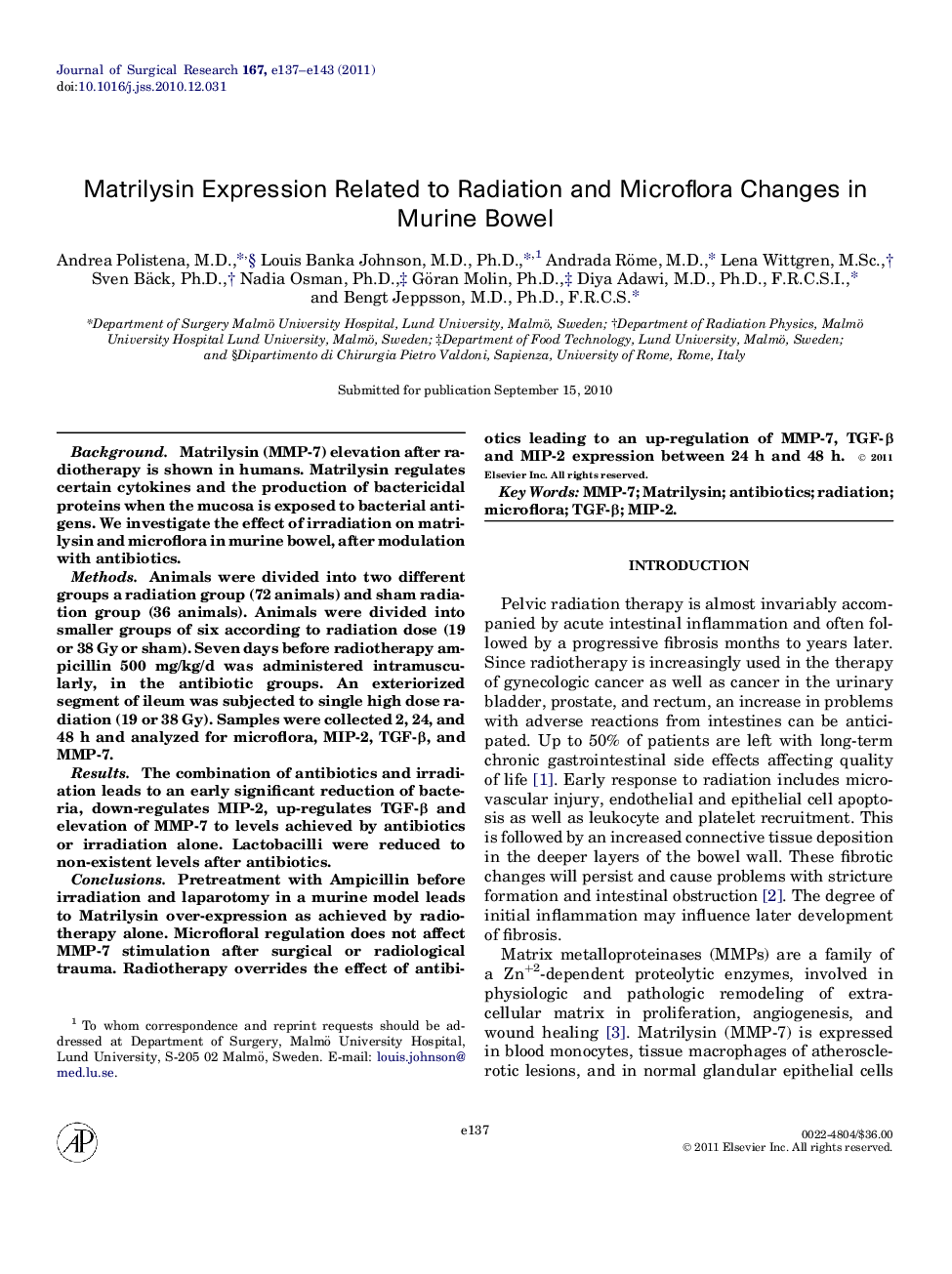| Article ID | Journal | Published Year | Pages | File Type |
|---|---|---|---|---|
| 4302529 | Journal of Surgical Research | 2011 | 7 Pages |
BackgroundMatrilysin (MMP-7) elevation after radiotherapy is shown in humans. Matrilysin regulates certain cytokines and the production of bactericidal proteins when the mucosa is exposed to bacterial antigens. We investigate the effect of irradiation on matrilysin and microflora in murine bowel, after modulation with antibiotics.MethodsAnimals were divided into two different groups a radiation group (72 animals) and sham radiation group (36 animals). Animals were divided into smaller groups of six according to radiation dose (19 or 38 Gy or sham). Seven days before radiotherapy ampicillin 500 mg/kg/d was administered intramuscularly, in the antibiotic groups. An exteriorized segment of ileum was subjected to single high dose radiation (19 or 38 Gy). Samples were collected 2, 24, and 48 h and analyzed for microflora, MIP-2, TGF-β, and MMP-7.ResultsThe combination of antibiotics and irradiation leads to an early significant reduction of bacteria, down-regulates MIP-2, up-regulates TGF-β and elevation of MMP-7 to levels achieved by antibiotics or irradiation alone. Lactobacilli were reduced to non-existent levels after antibiotics.ConclusionsPretreatment with Ampicillin before irradiation and laparotomy in a murine model leads to Matrilysin over-expression as achieved by radiotherapy alone. Microfloral regulation does not affect MMP-7 stimulation after surgical or radiological trauma. Radiotherapy overrides the effect of antibiotics leading to an up-regulation of MMP-7, TGF-β and MIP-2 expression between 24 h and 48 h.
